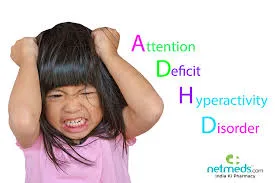What is ADHD?
Attention Deficit Hyperactivity Disorder (ADHD) is a neurodevelopmental disorder characterized by difficulties in regulating attention, behavior, and impulse control. While it is commonly diagnosed in children, it can also persist into adulthood, affecting various aspects of daily life.
The Impact on Individuals
Individuals with ADHD may struggle with maintaining focus, staying organized, and controlling their impulses, leading to challenges in academic, social, and professional settings. Understanding the nuances of this disorder is crucial for effective management and support.
Insights from the Peace Valley Children’s Village
Aavesham Star’s Perspective
Speaking after a visit to the Peace Valley Children’s Village in Kothamangalam, the Aavesham star shared his observations and concerns about ADHD. During his time at the village, he engaged with medical professionals to gain insights into the nature of the disorder and its treatment options.
Seeking Clarity on Treatment
Expressing curiosity and empathy, the Aavesham star questioned the feasibility of curing ADHD. His inquiry reflects a common desire to understand the complexities of the disorder and explore avenues for intervention and support.
Exploring ADHD Treatment Options
Multimodal Approach
Treating ADHD often involves a multimodal approach that combines medication, therapy, and lifestyle adjustments. While there is no one-size-fits-all solution, individuals with ADHD can benefit from personalized treatment plans tailored to their specific needs and circumstances.
Medication
Medications such as stimulants and non-stimulants may be prescribed to help manage symptoms of ADHD and improve focus, impulse control, and executive function.
Therapy
Behavioral therapy, cognitive-behavioral therapy (CBT), and psychoeducation can provide individuals with strategies to cope with ADHD-related challenges, enhance organizational skills, and improve social interactions.
Lifestyle Modifications
Incorporating healthy lifestyle habits such as regular exercise, adequate sleep, and stress management techniques can complement medical and therapeutic interventions, promoting overall well-being.
ADHD is a complex neurodevelopmental disorder that requires comprehensive understanding and personalized interventions. By raising awareness, fostering empathy, and exploring effective treatment options, we can support individuals with ADHD in leading fulfilling and successful lives.




